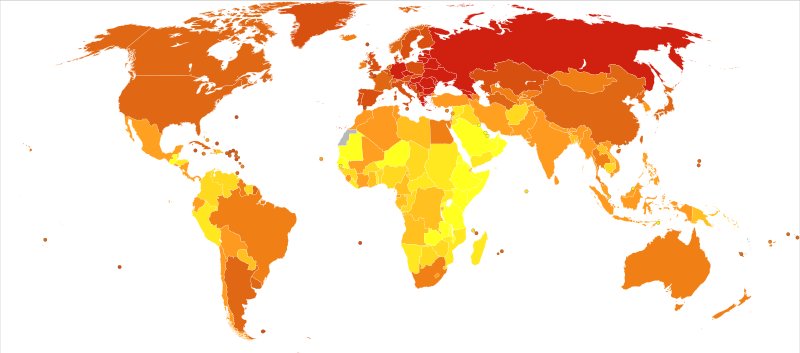Iran envisages reducing premature deaths caused by NCDs

TEHRAN — Adopting World Health Organization’s (WHO) Package of Essential Non-communicable (PEN), Iran is anticipating reduction of premature deaths caused by non-communicable diseases (NCDs) by 2025.
IraPEN is the Islamic Republic of Iran’s adaptation of WHO’s PEN interventions for primary health care. According to WHO’s official website IraPEN was launched in 2014 by the Ministry of Health and Medical Education, to provide universal health coverage, including access to NCD prevention and care, and mental health services.
Within the framework of IraPEN health workers show Iranians how to deal with their conditions, provide access to affordable medicines, and guidance on practicing healthy habits, like regular exercise and healthy diet to control their blood sugar.
IraPEN has been successfully piloted in Iran and its nationwide scale-up has begun in at least one district per province. IraPEN main purpose is to reduce premature deaths from NCDs by 25% by 2025, and by one-third by 2030 in line with the United Nations Agenda for Sustainable Development.
The Supreme Council of Health and Food Security, headed by Iranian President Hassan Rouhani, facilitates multi-sectoral collaboration across government, taking a-health-in-all approach that considers health as integral to all policies, from agriculture and trade to urban planning.
Additionally the Ministry of Health has established a national NCD committee to coordinate its national NCD action plan. Health authorities have signed agreements with the ministries of sports, education, agriculture, and industry to collaborate on fighting NCDs, from promoting healthier lifestyles to producing healthier food.
NCDs in Iran account for over three-quarters of all deaths. Over the past 20 years, deaths caused by NCDs have risen by 14.5%. An adult Iranian’s probability of dying prematurely (between 30 and 70 years) from one of the four main NCDs is now 17%.
The main types of NCDs are cardiovascular diseases (like heart attacks and stroke), cancers, chronic respiratory diseases (such as chronic obstructive pulmonary disease and asthma) and diabetes.
Iran is cracking on with the plan
Responding to the NCDs epidemic in all countries is feasible. But high-level commitment is essential. And in Iran, the country’s leadership is demonstrating such support.
To achieve the goals set by WHO to curb NCDs in sixth National Development Plan, Iran announced a €450 million (US$ 480 million) increase in its NCDs budget per year over the next five years, demonstrating action on NCDs is critical for its future.
Since 2016, Iran has introduced a “traffic light” food labelling scheme; salt, sugar, and fat regulation; and restrictions on imports of palm oil or food containing it.
“Iran is unique in harnessing its system and context to make it work for NCDs,” Dr Asmus Hammerich Coordinator for the Department of Noncommunicable Diseases at the WHO Regional Office for the Eastern Mediterranean has said. “They have lots of engagement from all areas, including the political and economic sectors.”
“The Islamic Republic of Iran is showing it is feasible for countries, and the world, to respond to the NCDs epidemic,” says Dr Oleg Chestnov, WHO’s assistant director-general for NCDs and mental health. “Through political commitment and all-of-government action, progress is being made to improve the health of Iranians, by protecting them from NCDs and providing needed care.”
Alireza Mahdavi, an official with NCD office at the Ministry of Health, has explained that screening schemes for NCDs are now being implemented covering 25 percent of the whole population.
He made the remarks on the occasion of National Health week, April 21-27.
“Currently screening tests for breast, cervical and colorectal cancers are added to the previously administered tests and carrying tests for screening metabolic, genetic disorders as well as diseases affecting joints and bones are on agenda,” ISNA news agency quoted Mahdavi as saying on Tuesday.
Minimizing such diseases in order to decrease premature deaths highly depends on the kind of lifestyle one adopts and this means that individuals play a key role in curbing non-communicable diseases, he added.
NCDs are real killers
As per the data collected by WHO non-communicable diseases kill 40 million people each year, equivalent to 70% of all deaths globally.
Each year, 15 million people die from a NCD between the ages of 30 and 69 years and over 80% of these "premature" deaths occur in low- and middle-income countries.
The diseases which are also known as chronic diseases, tend to be of long duration and are the result of a combination of genetic, physiological, environmental and behaviors factors.
MQ/MG
